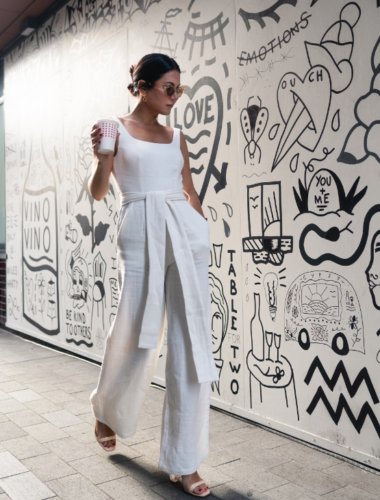Fashion trends are not merely products of creative inspiration and consumer demand; they are deeply intertwined with the currents of political and social movements that shape our societies. The evolution of fashion often mirrors the broader shifts in cultural values, ideologies, and aspirations, making it a powerful reflection of the times we live in.
Throughout history, political movements have left an indelible mark on fashion trends. One of the most striking examples is the impact of the women’s liberation movement of the 1960s and 1970s. As women fought for equal rights and challenged traditional gender roles, their fashion choices became symbolic expressions of their newfound freedoms. The era saw a rejection of restrictive clothing such as corsets and girdles in favor of more comfortable and practical styles like trousers and mini-skirts. Designers like Mary Quant and Yves Saint Laurent embraced these changes, creating garments that empowered women while challenging societal norms.
Similarly, the civil rights movements of the mid-20th century had a profound influence on fashion. African American activists used clothing as a form of protest and identity expression. The Afro hairstyle, dashikis, and African-inspired prints became symbols of black pride and resistance to racial oppression. This cultural reclamation extended to mainstream fashion, with designers incorporating African motifs and styles into their collections. The result was a fusion of political consciousness and aesthetic innovation that continues to resonate in contemporary fashion.
In more recent years, social movements like environmentalism and sustainability have significantly impacted fashion trends. With growing awareness of climate change and ethical concerns surrounding garment production, consumers and designers alike are increasingly prioritizing eco-friendly materials and ethical manufacturing practices. This shift has led to the rise of sustainable fashion brands and initiatives aimed at reducing the industry’s environmental footprint. From recycled fabrics to upcycled clothing lines, sustainability has become a defining feature of modern fashion, reflecting a broader commitment to social responsibility and environmental stewardship.
Moreover, LGBTQ+ rights movements have also influenced fashion, challenging gender norms and promoting inclusivity. Gender-neutral clothing lines and runway shows featuring diverse models have become more prevalent, reflecting a growing acceptance of fluidity and diversity in both fashion and society. Designers are increasingly blurring the lines between traditionally masculine and feminine styles, creating collections that celebrate individuality and self-expression regardless of gender identity.
The impact of political and social movements on fashion extends beyond aesthetics; it also shapes consumer behavior and market dynamics. As consumers become more socially conscious, they are demanding transparency and accountability from fashion brands regarding labor practices, diversity, and environmental impact. This shift in consumer expectations has forced many companies to reassess their policies and adopt more ethical and sustainable practices to remain competitive in an increasingly conscientious market.
Furthermore, the digital age has revolutionized how social movements and fashion trends intersect. Social media platforms have amplified the voices of activists and influencers, allowing movements to spread rapidly and reach global audiences. Fashion trends now emerge and evolve at unprecedented speeds, driven viral moments and online communities. Designers and brands must navigate this fast-paced digital landscape, responding swiftly to shifting consumer preferences and cultural shifts shaped social media activism.
In conclusion, the relationship between political and social movements and fashion trends is dynamic and multifaceted. From the women’s liberation movement to contemporary sustainability efforts, these movements have not only influenced the aesthetics of fashion but also challenged industry norms and spurred meaningful change. As we continue to navigate an increasingly interconnected world, fashion will likely remain a powerful vehicle for social expression and transformation, reflecting and shaping the values and aspirations of our time.

